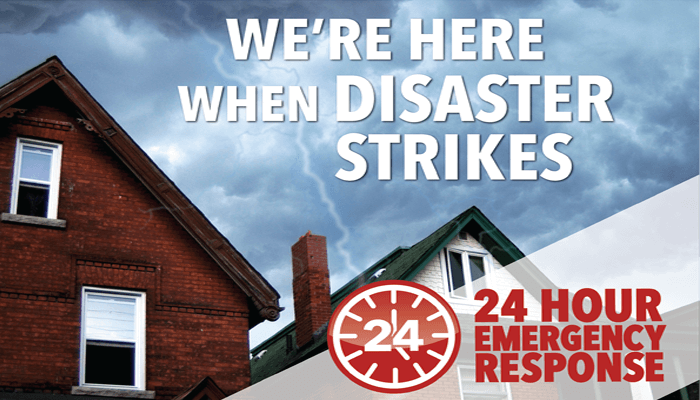Tell Your Insurance Company You Want NorthStar
CHECK OUT OUR WORK AND REVIEWS FROM YOUR NEIGHBORS!

Is Your Commercial Property Prepared?
We offer Priority Response Emergency Plan (PREP) programs for commercial properties.

What To Do When a Disaster Strikes
Download our "Disaster Strikes" Brochure to learn the DOs and DON'Ts of reacting to a property disaster.

Top 10 Commonly Asked Questions For My Insurance Agent
Unsure what to ask your insurance agent? We've got you covered!
Expert Water Damage Restoration and Cleanup Services - Your Local Specialists
The reliable professionals at NorthStar Restoration Services will take care of your damage repair needs. With more than 100 years of combined experience behind us, we're not afraid to handle large or complex projects. Our mission will be to make your home a safe and livable place again.
Our friendly team will strive to decrease the stress of having your property restored. We're organized and thorough, so we're able to supply prompt project completion on budget. In addition, our company offers a Priority Response Emergency Plan (PREP) program.
As a premier provider of damage repair services, NorthStar Restoration Services is committed to customer satisfaction. We're proud to be based in Wausau, WI. If you'd like to learn more about the work we do, contact us today.
READ OUR LATEST BLOG

Exploring Severe Weather Awareness Week with NorthStar Restoration Services
Navigating Severe Weather Awareness Week Through the Lens of NorthStar Restoration Services In the face of an ever-changing climate, the significance of Severe Weather Awareness

How Snowmelt Can Lead to Costly Water Damage
Check out our guide on how snowmelt can lead to costly water damage so you can protect your home effectively from its effects!

Understanding Mold: A Guide by NorthStar Restoration Services
Mold, a pervasive issue often hidden from plain sight, becomes noticeable through its distinctive musty smell. Despite its covert nature, mold’s spores are constantly on the move, posing significant health risks to certain individuals.
Wisconsin Businesses who have trusted NorthStar













